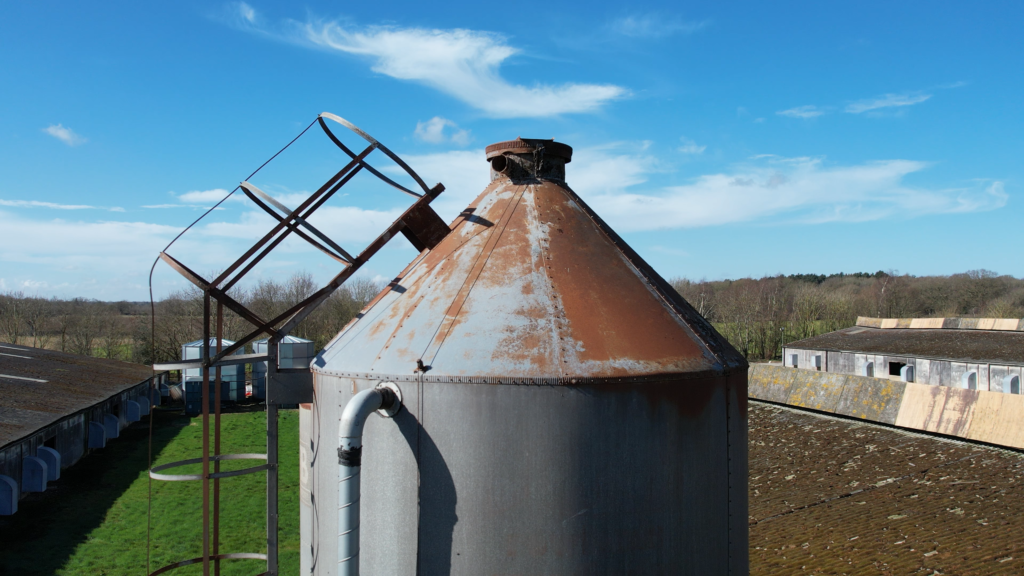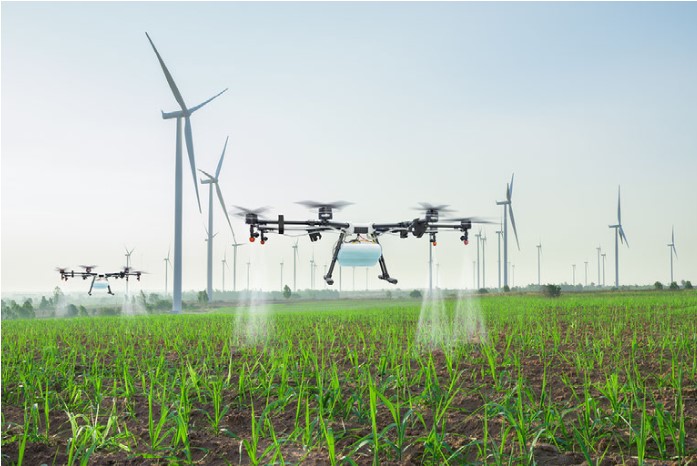
Welcome back to our blog, for an exhilarating journey into the intersection between technology and agriculture! Drones can be used for a wide variety of purposes in agriculture such as crop mapping, soil analysis, plant health monitoring, irrigation management, and pesticide application. They also can help by saving time and labour costs compared to traditional methods of field scouting and data collection. Drones are also known as unmanned aerial vehicles (UAVs), and their use has been increasing year on year especially in the agriculture industry. There are numerous ways in which drones can be used in agriculture and the farming industry. Today we delve into drone technology’s revolutionary role in the agriculture industry. I am thrilled to share how these ground-breaking flying devices are changing how farmers cultivate and harvest their crops.
Gone are the days of labour-intensive manual crop monitoring. Drones are equipped with high quality cameras and sensors that can capture high-resolution images, 4K videos or data that can be examined to identify areas of the field that requires attention. This could highlight areas of plant stress, pest infestations, or nutrient deficiencies, the information can then be used to make data-driven decisions about fertilization, irrigation, and pest control.
Traditional methods of crop spraying entail large machinery and significant physical labour. Some drones are equipped with sprayers that can be used to apply herbicides, fertilizers, and pesticides to the crop. This is particularly useful for smaller scale farms where traditional spraying methods may not be so cost-effective. Targeted measures not only increase crop protection but also minimise environmental impacts and operational costs, making the approach more efficient and cheaper.

Accurate mapping and surveying are vital for effective farm management. Drones fitted with GPS and advanced imaging technologies can quickly produce detailed maps of agricultural fields using drone technology to quickly create detailed maps illustrating variations in soil composition, elevation variation and vegetation density that help farmers optimise land use, plan irrigation systems and crop rotation strategies. They can create high resolution representations of farmland that can be produced from the data gleaned from the drone footage.
Drones can play an essential part in livestock farming as well. By equipping drones with thermal cameras and GPS tracking capabilities, farmers can effectively monitor the health and behaviour of their livestock more closely which is vital for good animal husbandry – from body temperature anomalies, injured or lost animals, herd location across vast grazing areas or to prevent disease outbreak. With so much data close at hand, farmers can ensure animal wellbeing, avoid epidemic diseases while improving overall management efficiency of livestock farming operations. The drone can also be used to ensure all perimeter fences are intact and secure to safeguard the animals and people.
Some drones can be used to monitor soil moisture levels and assess irrigation needs. This information can be used to enhance irrigation schedules and reduce water waste. Drones can provide valuable insights into environmental factors affecting agricultural practices. By monitoring soil erosion, vegetation, and water quality levels drones can assist farmers in finding conservation measures and sustainable farming techniques to increase yield and minimise losses.
The agriculture industry has moved on leaps and bounds since drone technology arrived on the scene. From crop monitoring and spraying, to mapping livestock management and livestock tracking – drones have proven themselves indispensable tools for modern farmers. By tapping into the drone’s aerial capabilities and advanced sensors farmers can maximise resource use, reduce environmental impacts, increase productivity, and ultimately maximise their profits as technology develops further. As agricultural technology becomes ever-more capable the agriculture industry stands to benefit immensely from all that drones bring to it.
To request a quote email us at [email protected] or call us on 01603 973201.
